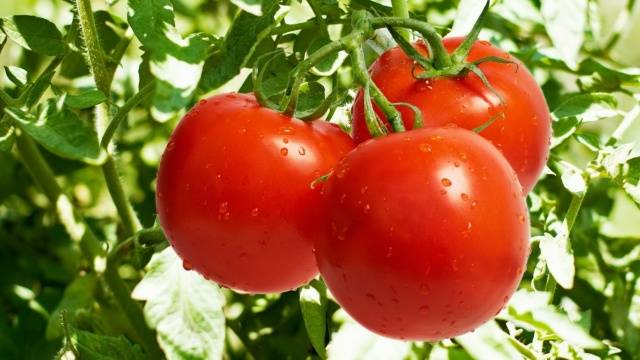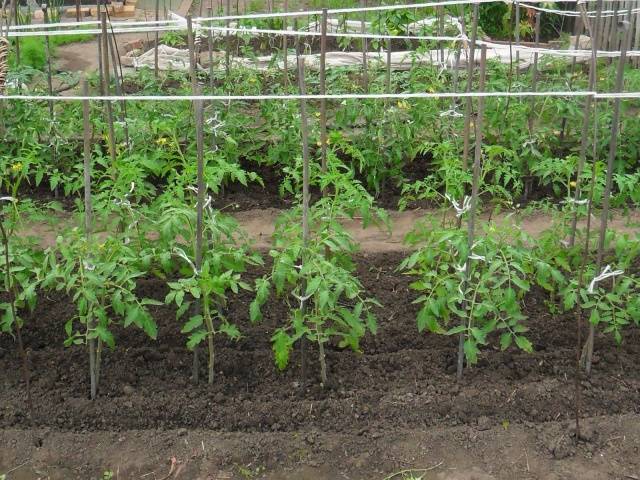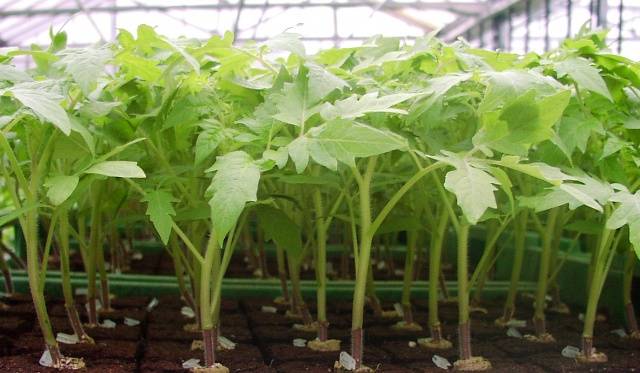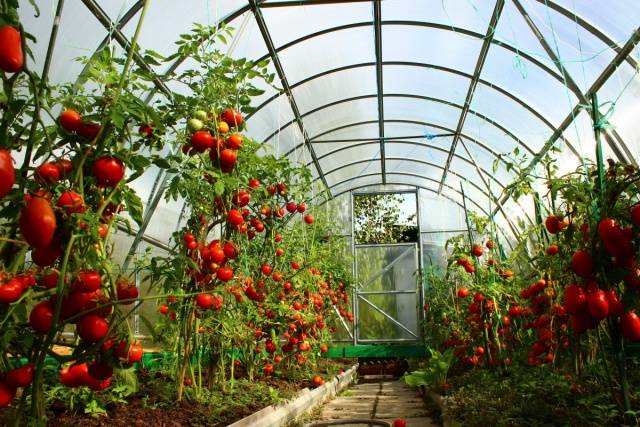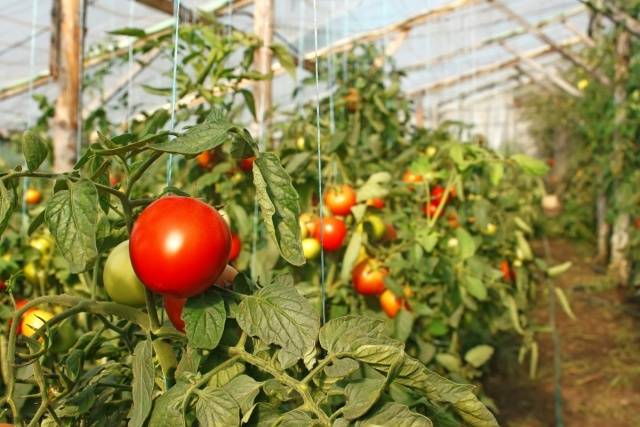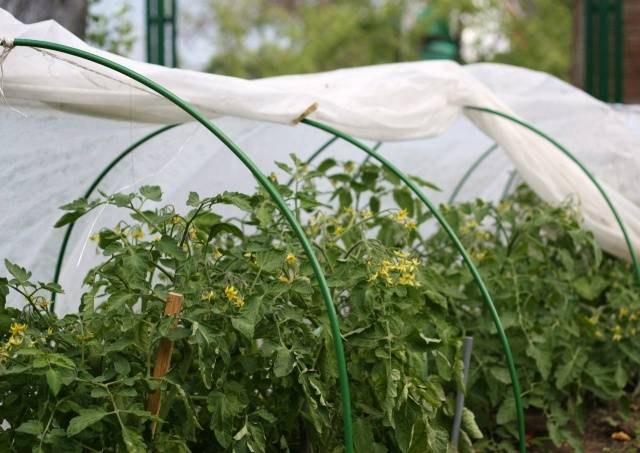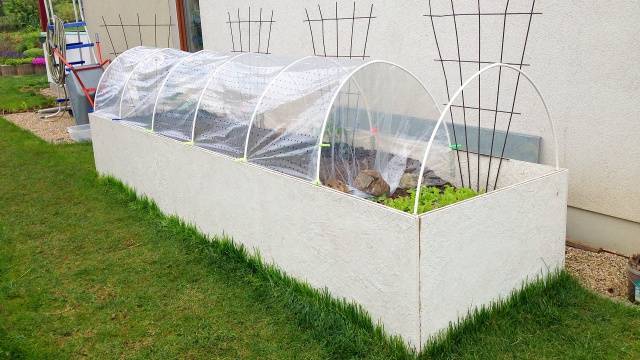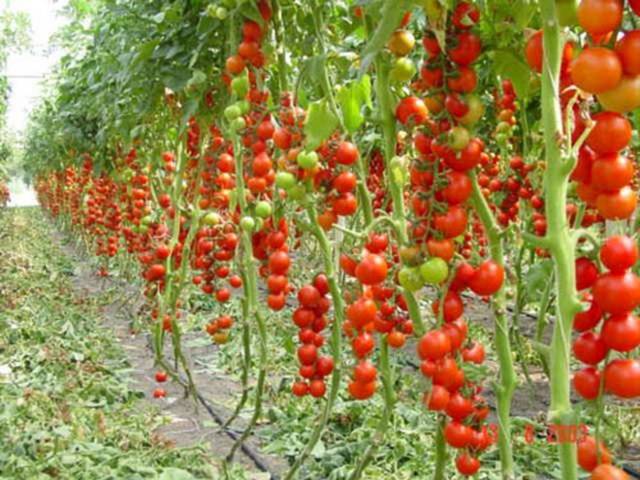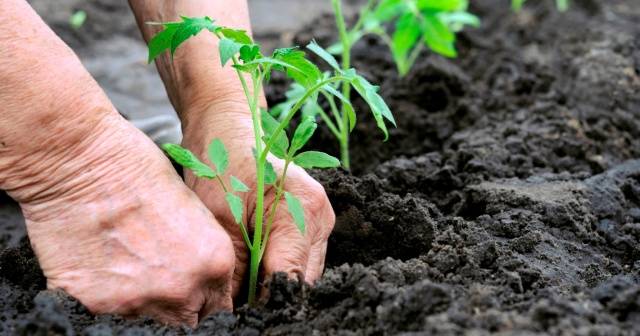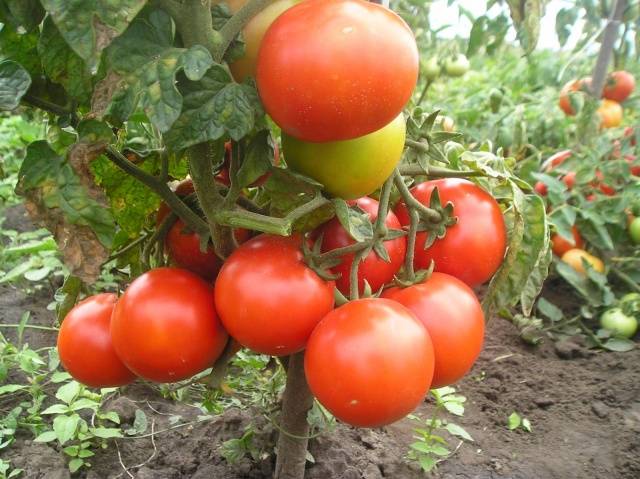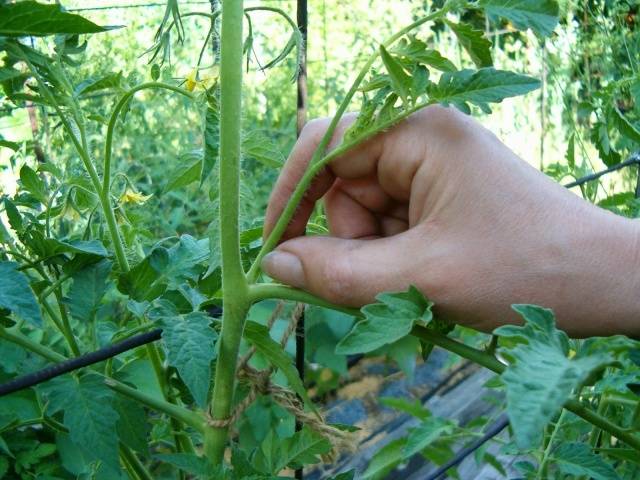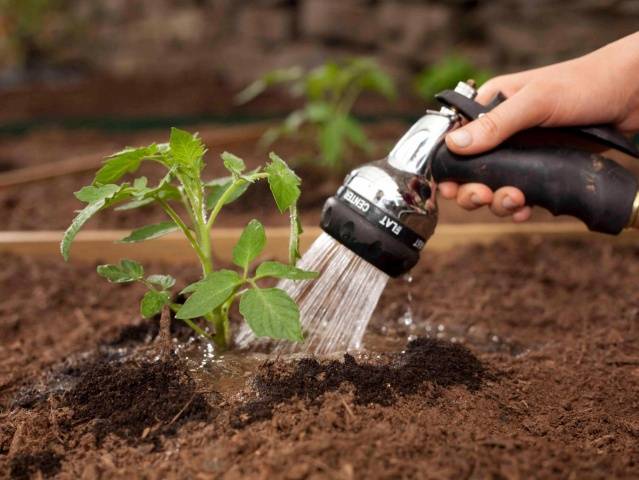Content
Tomatoes are one of the most sought-after crops in garden plots. Planting these plants in the Moscow region has its own characteristics. The timing depends on the weather conditions and the method of disembarkation: in the open priming, greenhouse or greenhouse.
Regardless of the method chosen, it is required to provide the necessary conditions for the tomatoes. Then the plants will be able to develop and bring the maximum yield.
How to choose a place for tomatoes
Tomatoes prefer an abundance of warmth and sunshine. This must be taken into account when choosing a garden bed. Tomatoes do not tolerate wind loads well, and frost can destroy the plant.
Tomatoes do well in places where cabbage, onions, carrots or legumes used to grow. If last year potatoes or eggplants grew in the garden, then another site should be selected. Re-planting tomatoes in the same place is allowed only after three years.
Preparing the soil for planting
Tomatoes are planted in light soil. If the soil is heavy, then it must first be fertilized. Humus and special fertilizers for tomatoes are suitable as top dressing. Manure should be added to the soil with care. Its excess causes active growth of leaves, which negatively affects fruiting.
It is best to prepare the soil for tomatoes in the fall. The soil must be dug up, and then fertilized. Just before planting, it is enough to loosen it and level it.
The soil for tomatoes is prepared from earth, humus and compost, which are taken in equal proportions. Superphosphate or ash can be added to the resulting mixture. The soil should remain loose and warm.
In the spring, the soil is dug up several times. At this stage, minerals and humus are added again. Fertilizer is poured into the holes before planting. With proper soil preparation, the plant takes root faster.
In greenhouses, the soil loses its properties faster. After harvesting, its layer is removed to a depth of 0.4 m. Then a layer of broken branches and sawdust is formed. After that, a layer of peat is laid, after which fertile soil is poured.
Seedling preparation
Seedling preparation should be started 2 months before planting. Tomato seeds begin to germinate in mid-February - early March.
To ensure seed germination, the ambient temperature should be 12 ° C at night and 20 ° C during the day. Additionally, artificial lighting is provided using a fluorescent lamp.
For planting, plants are selected that have sprung up during the week in large numbers. Every 10 days, the seedlings are fed with humus. For irrigation, melt or boiled water is used, which is sprayed from a spray bottle.
Greenhouse landing
After preparing the soil in the greenhouse, after a week and a half, you can start planting tomatoes. In the greenhouse, beds of the following sizes are formed:
- between low plants - from 40 cm;
- between averages - up to 25 cm;
- between high - up to 50 cm;
- between rows - up to 0.5 m.
The row spacing is determined by taking into account the size of the greenhouse It is better to leave free space between the tomatoes so that their leaves do not interfere with each other during the growth process.
A favorable microclimate should form in the greenhouse. Tomatoes prefer an air temperature of 20-25 ° C. The soil must reach a temperature of 14 ° C.
The order of planting tomatoes is as follows:
- For 5 days, the soil is treated with boric solution.
- For 2 days, the leaves of plants located at the roots are cut off.
- Wells are prepared with dimensions of about 15 cm (for low-growing varieties) or 30 cm (for tall plants).
- Tomatoes are removed from the containers along with a lump of earth and transplanted into the holes.
- The plant is covered with earth before the leaves begin to grow.
- The soil under the tomatoes is compacted and mulched with peat or humus.
Greenhouse landing
Unlike a greenhouse, a greenhouse has a simpler design. It provides warmth due to the decomposition of organic fertilizer (compost or manure). In the process of decay, the soil in the greenhouse is heated and the required temperature is provided.
The time for planting tomatoes in a greenhouse depends on the temperature of the soil. Additionally, the duration of the organic decomposition process is taken into account. For this, the air temperature must be set at 10-15 ° C.
Much depends on the season: how early spring came and the air had time to warm up. This usually happens by the beginning of May.
The process of planting tomatoes in a greenhouse includes a certain sequence of stages:
- The soil is prepared a week before the start of work.
- Holes are made up to 30 cm in size.
- Tomatoes are planted in the wells while preserving the root system.
- The ground around the plants is compacted.
- Each seedling is watered.
Tomatoes are planted in a greenhouse with the following distances:
- height - up to 40 cm;
- width - up to 90 cm;
- the distance between the walls of the greenhouse and the garden bed is 40 cm;
- the distance between the rows is 60 cm.
Usually a greenhouse contains one or two rows of tomatoes. As covering material special film or woven fabric is used. After establishing a stable temperature, there is no need for additional shelter for tomatoes.
Landing in open ground
Tomatoes can be planted in open areas in the Moscow region when the soil temperature reaches at least 14 ° C. Usually the soil warms up in the second half of May, but these periods may shift depending on the season.
A cloudy day is chosen for the work. It will be more difficult for the plant to take root under the hot sun rays. If cloudiness is not expected, then the planted tomatoes should be additionally protected from the sun.
The procedure for planting tomatoes in open ground is as follows:
- In the soil, holes are made to a depth of 12 cm.
- He adds compost, humus, mineral fertilizers to the resulting depressions.
- The planting site is watered abundantly.
- The seedlings are taken out of the container, keeping a clod of earth on the roots, and placed in the holes.
- Sprinkle the tomatoes with earth until the leaves.
If the seedling has a height of up to 0.4 m, then the plant is placed upright. If the tomatoes are overgrown, then they are laid at an angle of 45 °. This will allow the plant to form additional roots and provide an influx of nutrients.
The distance between the holes depends on the variety of tomatoes:
- 35 cm is left between low-growing plants;
- between medium and tall tomatoes, 50 cm is required.
Disembarkation is performed in rows or staggered. There are no restrictions here.
To protect tomatoes from frost, you can cover them with a film or covering material at night. This is done immediately after planting, when the plant has not yet matured. In the future, the need for additional shelter disappears.
Caring for tomatoes after planting
Once the tomatoes are planted, they need to be cared for properly. Watering is done immediately after placing the plants in the soil. Loosening, feeding, removal of stepsons and garter are performed as the tomatoes grow. Timely watering of the plants is ensured.
Loosening and hilling
Due to loosening, air exchange in the soil is carried out and moisture absorption is improved. The procedure is carried out to a depth of several centimeters so as not to damage the roots of the tomato.
Hilling is carried out during flowering and fruiting. As a result, additional roots appear, providing an influx of nutrients. Hay or peat can be laid on the surface of the soil, which will protect the tomatoes before they overheat in the heat.
Removing stepsons and garter
Lateral shoots or stepchildren that form on the trunk of a tomato take life-giving forces from it.
Therefore, they must be removed periodically. For this, it is not recommended to use an improvised tool, it is enough to break the extra shoots.
Low-growing varieties of tomatoes do not require a garter. For taller plants, a support is made in the form of a special net or pegs. Tomatoes are tied under the first ovary so as not to damage it.
Watering and feeding
Tomatoes are watered immediately after planting. Then a break is taken for 7 days. This rule is violated if the weather is hot.
Water the tomatoes at the root with warm water. It is best to leave watering for the evening. In this case, moisture is not allowed on the leaves of tomatoes. The procedure is often carried out in conjunction with feeding. For this, an organic or mineral fertilizer (nitrogen, phosphorus, potassium) is diluted in the water.
Conclusion
Tomatoes require special conditions, which must be taken into account when planting. In which month to carry out planting work, largely depends on the weather conditions. First of all produced planting tomatoes in a greenhouse and a greenhouse. Planting plants in open ground is allowed only when the air is sufficiently warmed up. Further growth of tomatoes depends on their correct watering, pruning and feeding.
